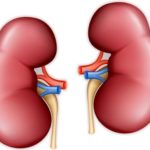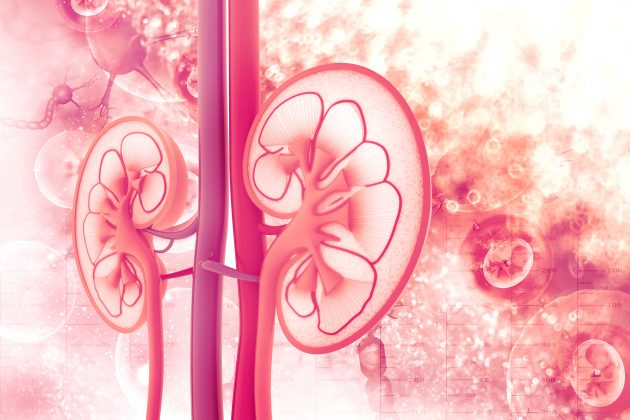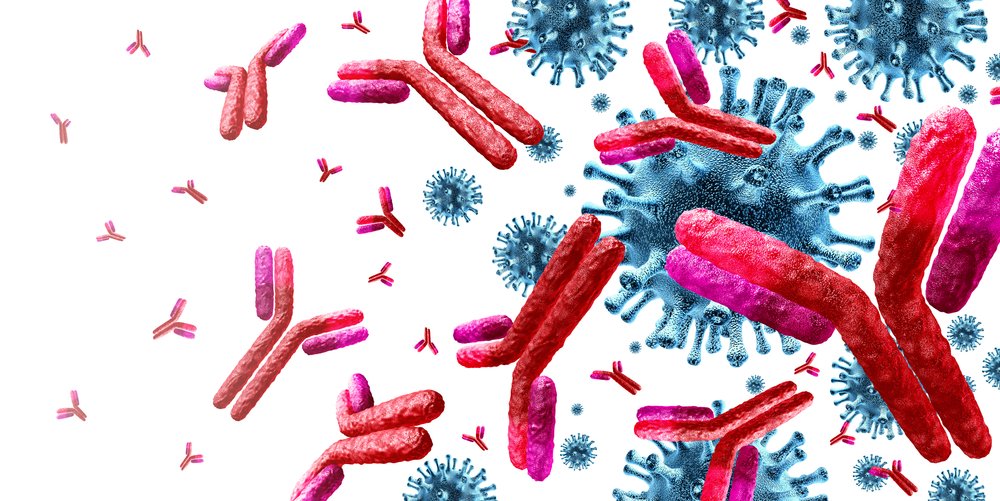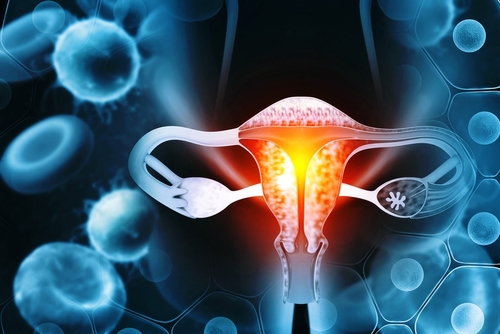
Patients with elevated serum urate levels are at increased risk for the onset and progression of chronic kidney disease (CKD) and end-stage renal disease (ESRD). Results of observational studies have shown a linear association between serum urate levels and outcomes that include onset of CKD, progression to ESRD, cardiovascular events, and death. As a result of reduced excretion, serum urate level increases linearly with decreasing glomerular filtration rate (GFR). It is unknown whether elevated serum urate levels have a causative role in kidney disease progression, or are an indirect marker of decreased kidney function, or both.
Sunil V. Badve, PhD, and colleagues conducted the CKD-FIX (Controlled Trial of Slowing of Kidney Disease Progression from the Inhibition of Xanthine Oxidase) study to test the hypothesis that urate-lowering therapy with allopurinol would attenuate the decline in estimated GFR (eGFR) over a period of 104 weeks in a population of patients with CKD. Results of the study were reported in the New England Journal of Medicine [2020;382(26):2504-2513].
The investigator-initiated, randomized, double-blind, placebo-controlled trial was conducted at 31 centers in Australia and New Zealand. Eligible patients were adults with stage 3 or 4 CKD, defined as eGFR 19 to 59 mL/min/1.73 m2, who were at increased risk for CKD progression. An increased risk for CKD progression was defined as a urinary albumin:creatinine ratio of ≥265 (with albumin measured in milligrams and creatinine in grams) (≥30 with albumin measured in milligrams and creatinine in millimoles) or a decrease in eGFR of at least 3.0 mL/min/1.73 m2 in the preceding 12 months. Exclusion criteria were history of gout, allopurinol hypersensitivity, clinical indication for allopurinol, and unresolved acute kidney injury in the previous 3 months.
The primary outcome of interest was the change in eGFR from baseline to 104 weeks, using the Chronic Kidney Disease Epidemiology (CKD-EPI) creatinine equation. Secondary outcomes included a composite of 40% reduction from baseline in eGFR or death from any cause; a composite of a 30% reduction in eGFR from baseline, ESRD, or death from any cause; individual components of the composite kidney outcomes; blood pressure, albuminuria and serum urate level; cardiovascular events; hospitalization for any cause; and quality-of-life scores on the 36-Item Short Form Survey. Patients were randomized to receive allopurinol (100 to 300 mg daily) or placebo.
A total of 369 patients (60% of the target number) were randomly assigned to either the allopurinol group (n=185) or the placebo group (n=184) from March 2014 through December 2016. The researchers stopped enrollment due to slow recruitment. Immediately after randomization, three patients in each group withdrew consent. The remaining 363 patients were included in the assessment of the primary outcome.
At the end of the 12-week dose escalation phase, 69% (n=126), 9% (n=17), and 5% (n=9) of the 182 patients in the allopurinol group were taking three tablets, two tablets, and one tablet daily, respectively; in the placebo group, the corresponding percentages were 70% (n=126), 15% (n=27), and 6% (n=10) of 181 patients.
During the 104-week follow-up period, 54 patients (30%) in the allopurinol group and 45 patients (25%) in the placebo group discontinued the assigned regimen. A total of 132 patients (73%) in the allopurinol group and 144 patients (80%) in the placebo group completed the 104-week follow-up period. Patients in the allopurinol group took allopurinol for a mean of 75.8 weeks; patients in the placebo group received placebo for a mean of 83.0 weeks.
With the exception of the primary cause of kidney disease, baseline characteristics were balanced between the groups. Mean eGFR was 31.7 mL/min/1.73 m2 and median urinary albumin-creatinine ratio was 716.9. Mean serum urate level was 8.2 mg/dL.
There was no significant difference in change in eGFR between the allopurinol group and the placebo group: –3.33mL/min/1.73 m2 per year and –3.23 mL/min/1.73 m2 per year, respectively; mean difference, –0.10 mL/min/1.73 m2 per year. Results were similar in additional analyses and sensitivity analyses, and the results for the primary outcome were consistent across a wide range of prespecified subgroups.
The secondary composite outcome of a 40% decrease in eGFR, ESRD, or death from any cause occurred in 35% (n=63) of patients in the allopurinol group and in 28% (n=51) of patients in the placebo group (risk ratio [RR], 1.23; 95% confidence interval [CI], 0.90-1.67; hazard ratio [HR], 1.34; 95% CI, 0.92-1.93). Results were similar for the composite outcome of a 30% decrease in eGFR, ESRD, or death from any cause (RR, 1.13; 95% CI, 0.89-1.44; HR, 1.23; 95% CI, 0.90-1.69).
In the allopurinol group, mean serum urate level decreased to 5.1 mg/dL (95% CI, 4.8-5.3) at 13 weeks and remained at 5.3 mg/dL (95% CI, 5.1-5.6) up to 104 weeks. In the placebo group, mean serum urate level at 12 weeks was 8.2 mg/dL (95% CI, 7.9-8.5) and remained at 8.2 mg/dL (95% CI, 7.9-8.4) for the duration of follow-up.
Overall, the mean differences in the serum urate level, following adjustment for baseline values, was –2.7 mg/dL (95% CI, –3.0 to –2.5). There were no significant differences between the two groups in urinary albumin:creatinine ratio, systolic blood pressure, diastolic blood pressure, or health-related quality of life.
The rates of serious adverse events were similar in the two groups: 170 events among 84 participants in the allopurinol group and 167 events among 79 participants in the placebo group (46% and 44%, respectively). There were no significant differences in the risk of nonserious adverse drug reactions, including rash, between the two groups.
Limitations to the findings cited by the authors included insufficient power due to incomplete enrollment, a high percentage of patients who discontinued the regimen, the use of a serum creatinine-based equation for the calculation of eGFR, and the use of a surrogate outcome.
In conclusion, the researchers said, “In the present trial, which was stopped early, we did not find that allopurinol was more effective than placebo in slowing the decline in eGFR over a period of 104 weeks in patients with stage 3 or 4 CKD and an elevated risk of disease progression.”
Takeaway Points
- Researchers conducted a randomized, controlled trial to determine whether urate-lowering treatment with allopurinol would attenuate decline in estimated glomerular filtration rate (eGFR) in patients with chronic kidney disease at risk for disease progression.
- Adults with stage 3 or 4 CKD and no history of gout were randomly assigned to receive allopurinol or placebo; the primary outcome of interest was the change in eGFR from baseline to week 104.
- Compared with placebo, among patients with CKD and a high risk of progression, urate-lowering treatment with allopurinol did not slow a decline in eGFR.
Credit: Original article published here.









